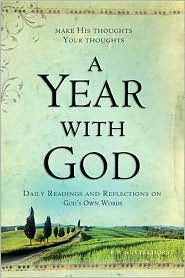There are, in the Bible, what are termed the "imprecatory Psalms." These are Psalms which call for the destruction of enemies. Many who read such poems come away very disturbed by what they say. Consider, for instance, Psalm 137, which ends by commenting "O Daughter of Babylon, doomed to destruction, happy is he who repays you for what you have done to us--he who seizes your infants and dashes them against the rocks."
The emotions reflected in the Psalm seem at odds with our picture of a loving God and the central biblical command to "love others." And yet, for anyone who has suffered injustice or evil, the emotions reflected in Psalm 137, if we're honest with ourselves, resonate with us and give vent to our own feelings.
And yet, Proverbs 22:17-18 says this: “Do not gloat when your enemy falls; when he stumbles, do not let your heart rejoice, or the LORD will see and disapprove and turn his wrath away from him.”
Jesus tell us repeatedly to “love our neighbors" and to "love our enemies." So there is a natural tendency for some Christians, perhaps most, to feel guilty if they feel any joy over the death of even a terrorist like Al-Zarqawi, who was responsible for personally murdering many people.
But there is more to the biblical picture that needs to be considered in dealing with this question. We must consider the story of Purim, which is a time of celebration for the death of the evil Haman and his monstrous plans (see Esther 8-9). We might want to consider, too, the sense of the book of Revelation, whose aim is to provide comfort for the persecuted in the face of their persecution, with the promise that those who have tormented them will be destroyed. Consider the words of Revelation 18:20, regarding the destruction of Babylon (i.e., the City of Rome): “Rejoice over her, O heaven! Rejoice, saints and apostles and prophets! God has judged her for the way she treated you.' And of course we find the Song of Moses in Exodus 15, where the people rejoice over their deliverance from the Egyptians, and their great pleasure that the army that pursued them perished by drowning in the Red Sea.
So how to reconcile the two ideas of love for the enemy, with joy over his destruction? Can it be done? Or should we consider that the law of love trumps anything else that might seem in conflict?
Perhaps it's akin to the biblical prohibition on murder. If I kill my neighbor for letting dandelions grow in his lawn, then I’m a murderer. But if I’m a soldier who kills the enemy, or a police officer who kills a bad guy, or I kill someone in self-defense or to protect someone else, then I’m a hero. If I take money from your wallet, I'm a theif, but if the government does it, it's taxation and perfectly legitimate.
It is a complex issue biblically, related I think to the question of whether war is ever appropriate. Those who accept pacificism will view it as never being legitimate. Personally, I think that's hard to justify biblically, let alone realistically, as much as I like the sentiment and wish it could be true, and in fact as much as I would prefer it to be true.
The nature of love, what it feels like from God, seems to depend on our relationship to him. Consider another Psalm, Psalm 136, which tells us repeatedly that God's love endures forever. the Psalm lists a variety of things that the Psalmist thinks illustrates how great God's love is:
Give thanks to the LORD, for he is good. His love endures forever.
Give thanks to the God of gods. His love endures forever.
Give thanks to the Lord of lords: His love endures forever.
to him who alone does great wonders, His love endures forever.
who by his understanding made the heavens, His love endures forever.
who spread out the earth upon the waters, His love endures forever.
And so it goes, with the poet talking about a variety of blessings that illustrate how God's "love endures forever." But then the Psalmist writes:
to him who struck down the firstborn of Egypt His love endures forever.
And then:
who struck down great kings, His love endures forever.
and killed mighty kings-- His love endures forever.
Sihon king of the Amorites His love endures forever.
and Og king of Bashan-- His love endures forever.
I suspect that the first born of Egypt, Sihon, and Og might not have "felt the love" as they died. But for the Israelites, gaining deliverance from their enemies, the deaths of the first born and these kings seemed quite loving. How we feel about God's love seems to depend on which side we're on; kind of like fire. If we're cold and sitting next to it, it feels good. If we've stuck our finger into it, it feels bad. If I kill the murderer attempting to kill my friend, my friend will "feel the love" from me. The murderer's opinion might be different. But who cares?
In the final analysis, I, personally, cannot feel guilty for being happy that an evil, murderous, depraved thug can no longer kill people. Zarqawi was depraved and the world is a better place without him.






No comments:
Post a Comment